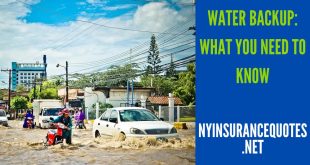Floods can be devastating, leaving behind a trail of destruction and loss. The aftermath of a flood can be overwhelming, leaving homeowners and renters struggling to pick up the pieces and rebuild their lives. The extent of the flood damage can vary greatly, depending on the severity of the flood and the location of your property. In this article, we will discuss what to expect in the aftermath of a flood, and provide some tips on how to move forward.
What to Expect After a Flood
Water Damage
Water damage is one of the most common and significant impacts of a flood. Flood waters can cause damage to flooring, walls, furniture, and other belongings. Depending on the severity of the flood, water may also seep into the foundation of the property, causing structural damage. If left untreated, water damage can lead to mold and mildew growth, which can be harmful to your health.
Mold and Mildew Growth
Mold and mildew thrive in moist environments, and can quickly grow after a flood. If not addressed promptly, mold and mildew can cause health problems, including respiratory issues and allergies. It is important to have a professional assess the damage and determine the best course of action to prevent mold and mildew growth.
Contamination
Flood waters are often contaminated with bacteria, sewage, and other harmful substances. This can pose a serious health risk, and it is important to take precautions when entering flooded areas. Be sure to wear protective gear, such as gloves and masks, and avoid contact with flood water as much as possible.
Structural Damage
Floods can cause structural damage to buildings, which can compromise their stability and safety. It is important to have a professional assess the damage and make any necessary repairs to ensure that the property is safe to inhabit.
Displacement
In some cases, floods can force residents to evacuate their homes, leaving them displaced for an extended period of time. This can be a difficult and emotional experience, and it is important to have a support system in place to help you through the process.
Steps to Take After a Flood
Contact Your Insurance Company
Contact your insurance company as soon as possible to report the flood damage. They will send an adjuster to assess the damage and determine the coverage for your claim.
Document the Damage
Take photos and videos of the damage to your property, and make a list of all the affected items. This will help ensure that you receive proper compensation from your insurance company.
Hire a Professional Restoration Company
Hiring a professional restoration company can help ensure that the flood damage is properly addressed. They have the necessary equipment and expertise to quickly and effectively remove water, prevent mold and mildew growth, and make necessary repairs.
Practice Good Hygiene
If you have been in contact with flood water, it is important to practice good hygiene to prevent illness. Wash your hands frequently, and avoid touching your face.
Seek Support
Recovering from a flood can be a long and emotional process. It is important to have a support system in place to help you through the challenges. Consider reaching out to family, friends, or a support group.
FAQs:
Q: Will my insurance cover the flood damage? A: It depends on the type of insurance policy you have. Most standard homeowners and renters insurance policies do not cover flood damage. You may need to purchase a separate flood insurance policy to be covered.
Q: Can I clean upthe flood damage myself?
A: While it may be tempting to try to clean up the flood damage yourself, it is not recommended. Flood waters can be contaminated with harmful bacteria and other substances, and attempting to clean it up without the proper equipment and protective gear can put your health at risk. It is best to hire a professional restoration company to properly assess and address the damage.
Q: How long will it take to recover from a flood?
A: The recovery process can vary greatly depending on the severity of the flood damage. It may take weeks, months, or even longer to fully recover. It is important to have patience and to take the necessary steps to properly address the damage and prevent future issues.
Conclusion:
Floods can be devastating, leaving behind a trail of destruction and loss. It is important to understand what to expect in the aftermath of a flood and to take the necessary steps to address the damage and prevent future issues. By contacting your insurance company, documenting the damage, hiring a professional restoration company, practicing good hygiene, and seeking support, you can begin the process of recovering from a flood and getting your life back on track. Remember, the most important thing is your safety and well-being, so take the time to care for yourself and your loved ones during this challenging time.
 Insurance New York Insurance Quotes
Insurance New York Insurance Quotes 




